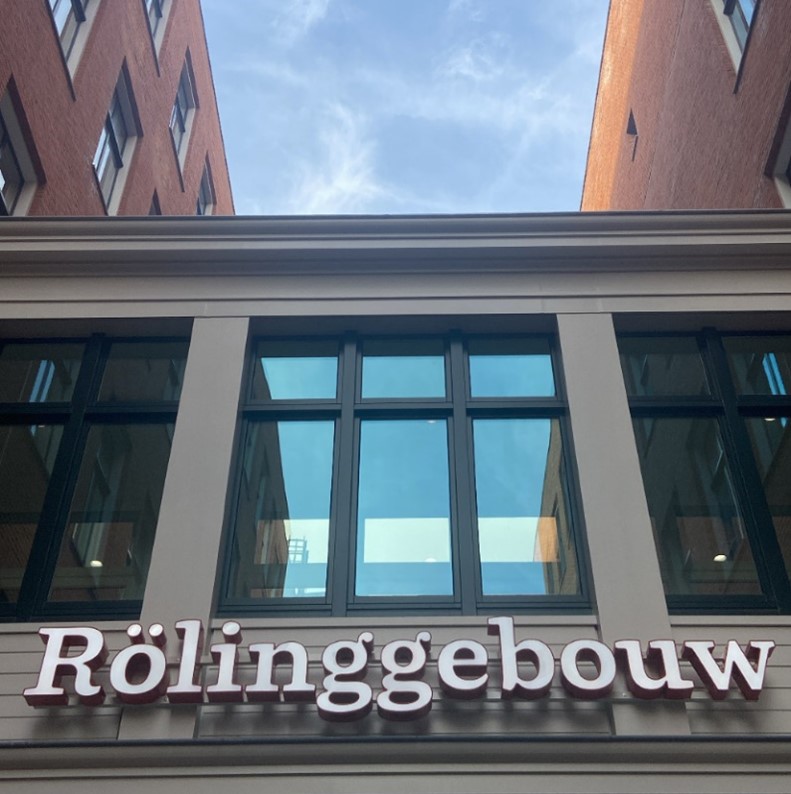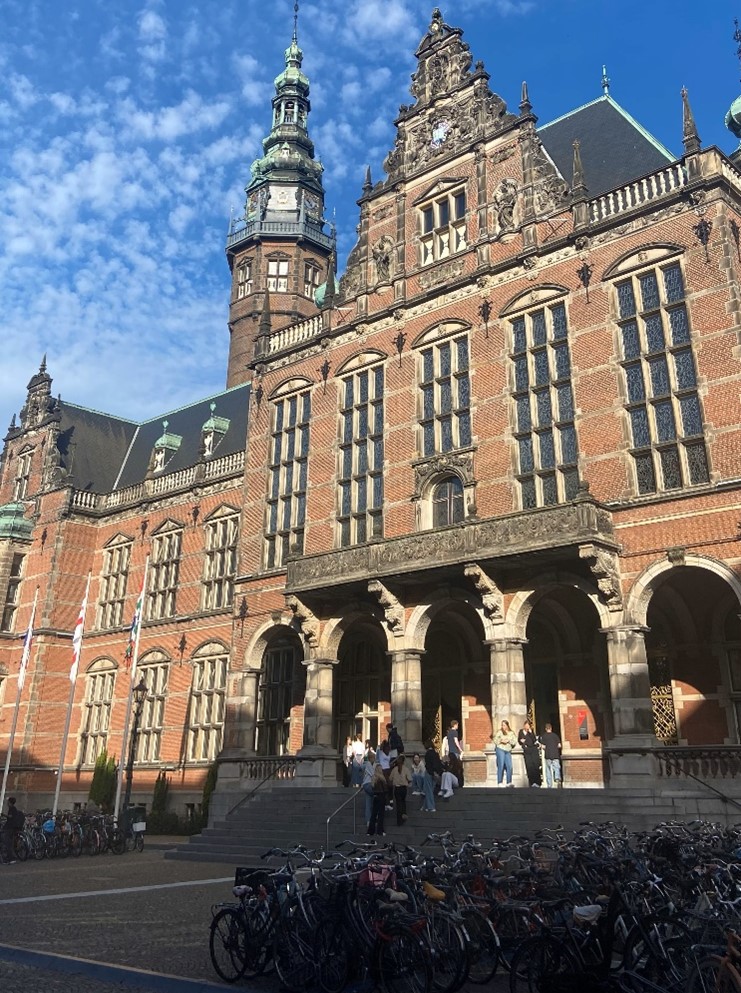My expectations were exceeded when I met my amazing host in person, Professor Lottie Lane. Lottie is not only an incredible researcher but also an amazing colleague and friend. As a host, she made sure that I had all the necessary resources and support to make the most of my visit. She dedicated her time, energy, and kindness to supporting me during my visit to Groningen.
The Transboundary Legal Studies (TLS) is a fantastic department to visit. The department does not only carry out high-quality and novel research in many different fields of law, but it is also composed of a brilliant and diverse group of people coming from all parts of the world. The TLS department is a place of diversity, community spirit, and research excellence. During my visit, I worked on my PhD dissertation, and I had the amazing opportunity to present my research to the entire department, where I received helpful and extremely relevant feedback.
On 26 September 2023, I attended the workshop titled ‘Future-proofing your human rights research: Climate change as a cross-cutting issue for human rights research’, co-hosted by the Groningen Centre for Health Law at the University of Groningen and Tilburg Law School. In the workshop, we discussed the human rights impacts of climate change, which are increasingly severe in the coming years, including for young people, and other vulnerable communities. Among other claims, we concluded that a human rights-based approach must shape consultations with young people and other affected communities and the participation necessary in State decision-making around climate change mitigation, adaptation, and loss and damage. Climate change is thus a pervasive factor for the universal enjoyment of human rights, both now and for generations to come. Finally, more research should be done to better understand the impacts of climate change on socio-economic rights of the present and future generations.
Apart from all the research goals that I achieved in Groningen, I also took advantage of my location to visit other cities in the Netherlands such as The Hague and Amsterdam. I was able to meet and connect with other academics in my field of research whom I have admired and whose work I have followed for many years.

I also experienced the particularities of the Dutch University culture, which has a lot of positive aspects that resonate with our Finnish University culture. One example is the informal and inviting work environment, where everyone is encouraged to share their research ideas, openly discuss, and seek feedback on projects, or anything related to their area of interest. The community spirit, peer support and low threshold for academic reflections and exchanges are highly successful practices that I noticed while I was in TLS, which could be even more replicated in Finland.
As much as I try to describe the incredible learning experiences that I will take with me from this time, it is not possible to express in words how much I benefited from my visit. I hope that this blog post will serve as an incentive to other researchers to consider the idea of planning a research visit abroad. As academics, we can only benefit from these types of exchanges, connections, collaborations, and peer support. It is part of our role as scientists to come together and to share our knowledge and promote open, high quality, and insightful discussions to advance our field and to contribute to our societies.
Bruna de Castro e Silva
The writer is a Doctoral Researcher at Tampere University, Faculty of Management and Business, Administrative Studies, Public Law department. Her research field is human rights and new technologies.
